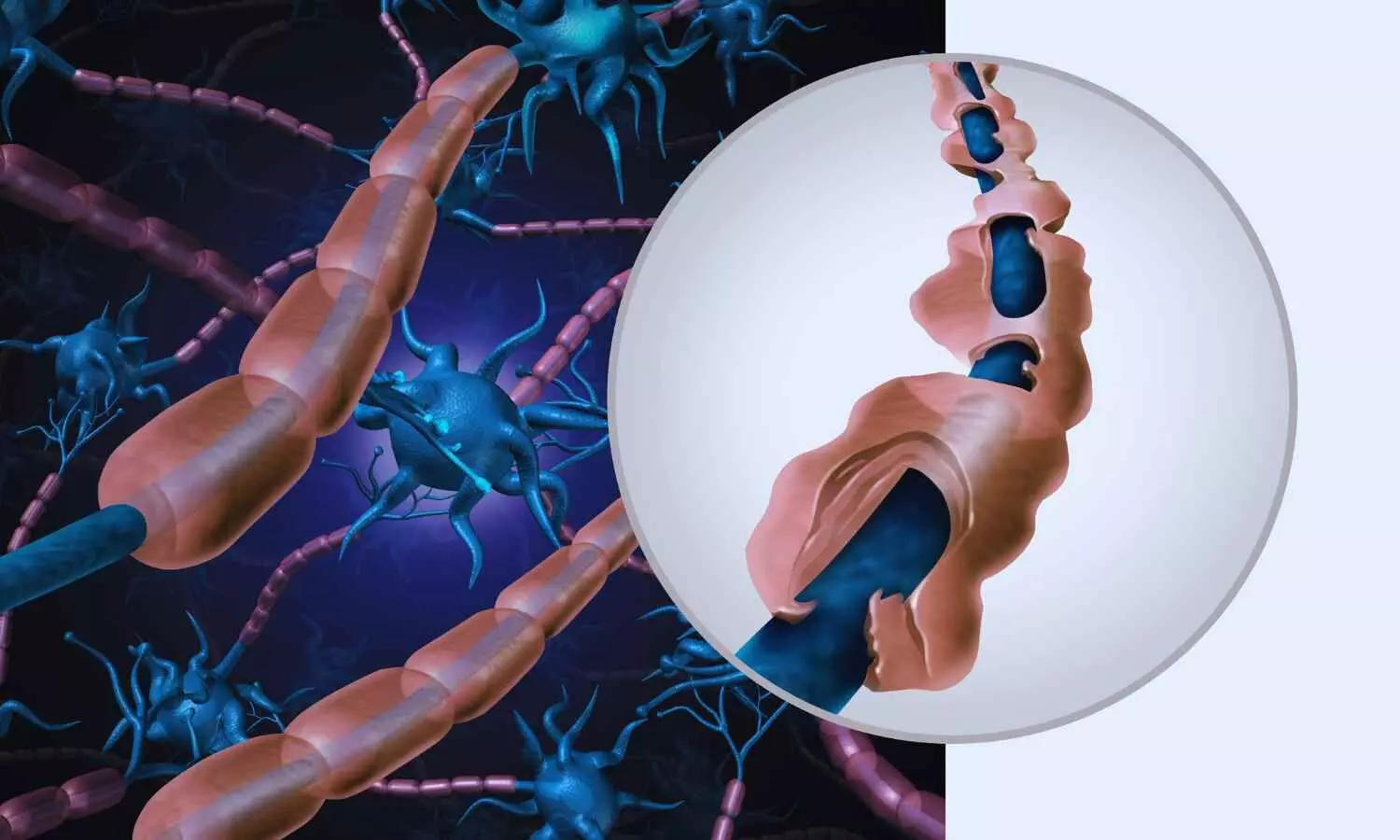New blood test shows promise in detecting ALS early
- byDoctor News Daily Team
- 20 October, 2025
- 0 Comments
- 0 Mins

New research by UCLA Health has found a simpleblood testcould provide faster and more accurate diagnosis of ALS by measuring cell-free DNA. The noninvasive test could not only allow neurologists to rule out other neurological diseases but also detect ALS disease earlier to provide better treatment and potentially improve life expectancy. The study, published in the journalGenome Medicine, is the first to test cell-free DNA — fragments of DNA released into the blood from dying cells — as a potential ALS biomarker. Commonly known as Lou Gehrig's disease,amyotrophic lateral sclerosis(ALS) is a rare and currently incurableneurodegenerative diseasethat causes the loss of motor neurons in the brain and spinal cord. ALS onset typically begins in patients who are 50-70 years old with life expectancy being only two to five years after initial diagnosis, according to the National Institutes of Health. While ALS is rare in people ages 40 or younger, earlier diagnosis can provide higher life expectancy, thus prompting neurologists to find a way to better predict onset and disease intensity. “There is an urgent need for a biomarker in ALS to diagnose patients more quickly, support clinical trials and monitor disease progression,” said the study’s lead author Dr. Christa Caggiano, a postdoctoral fellow at UCLA Health’s Neurology Department. “Our study presents cell-free DNA, combined with a machine learning model, as a promising candidate to fill this gap.” Caggiano and fellow UCLA Health researchers, along with their collaborators at the University of Queensland, tested cell-free DNA as an ALS biomarker because it releases from dying cells in different body tissues affected by the disease and have distinct signatures. These signatures are caused by the natural process of DNA methylation, which occurs when a methyl group molecule attaches to DNA and helps to regulate expression of genes. ALS leads to changes both in the amount of cell-free DNA released from degenerating cells as well as patterns of methylation. In the study, Caggiano tested this method on two groups of ALS patients and healthy participants. Computer models tested to see if these DNA signals could predict which patients had ALS and who was healthy. The test was able to significantly discriminate between ALS patients and healthy participants and was able to provide insights disease severity. “Our model test could not only distinguish ALS patients from healthy individuals but also from those with other neurological conditions, which is a challenge for current ALS biomarkers,” Caggiano said. “We hope this could lead to faster diagnoses and better predictions of patient outcomes." Caggiano said an advantage of this test is that it examines cell-free DNA from several tissue types and not just nerve cells. The test was able to pick up signals from dying muscle tissue and inflammation, suggesting that ALS may also affect muscle tissues and immune cells. While the biomarker test shows promise, Caggiano said larger studies with more diverse participants and testing methods are needed before it can be relied on in clinical settings. UCLA Health is currently conducting a larger trial in conjunction with other research institutions to attempt to validate this biomarker test. Caggiano, C., Morselli, M., Qian, X. et al. Epigenetic profiles of tissue informative CpGs inform ALS disease status and progression. Genome Med 17, 115 (2025). https://doi.org/10.1186/s13073-025-01542-5.
Disclaimer: This website is designed for healthcare professionals and serves solely for informational purposes.
The content provided should not be interpreted as medical advice, diagnosis, treatment recommendations, prescriptions, or endorsements of specific medical practices. It is not a replacement for professional medical consultation or the expertise of a licensed healthcare provider.
Given the ever-evolving nature of medical science, we strive to keep our information accurate and up to date. However, we do not guarantee the completeness or accuracy of the content.
If you come across any inconsistencies, please reach out to us at
admin@doctornewsdaily.com.
We do not support or endorse medical opinions, treatments, or recommendations that contradict the advice of qualified healthcare professionals.
By using this website, you agree to our
Terms of Use,
Privacy Policy, and
Advertisement Policy.
For further details, please review our
Full Disclaimer.
Recent News
NEET 2025: TN Health extends round 3 choice fillin...
- 31 October, 2025
DME Gujarat extends PG Ayurveda, Homeopathy round...
- 31 October, 2025
Decade-Long Study of PCI and CABG in Left Main Cor...
- 31 October, 2025
Daily Newsletter
Get all the top stories from Blogs to keep track.


0 Comments
Post a comment
No comments yet. Be the first to comment!